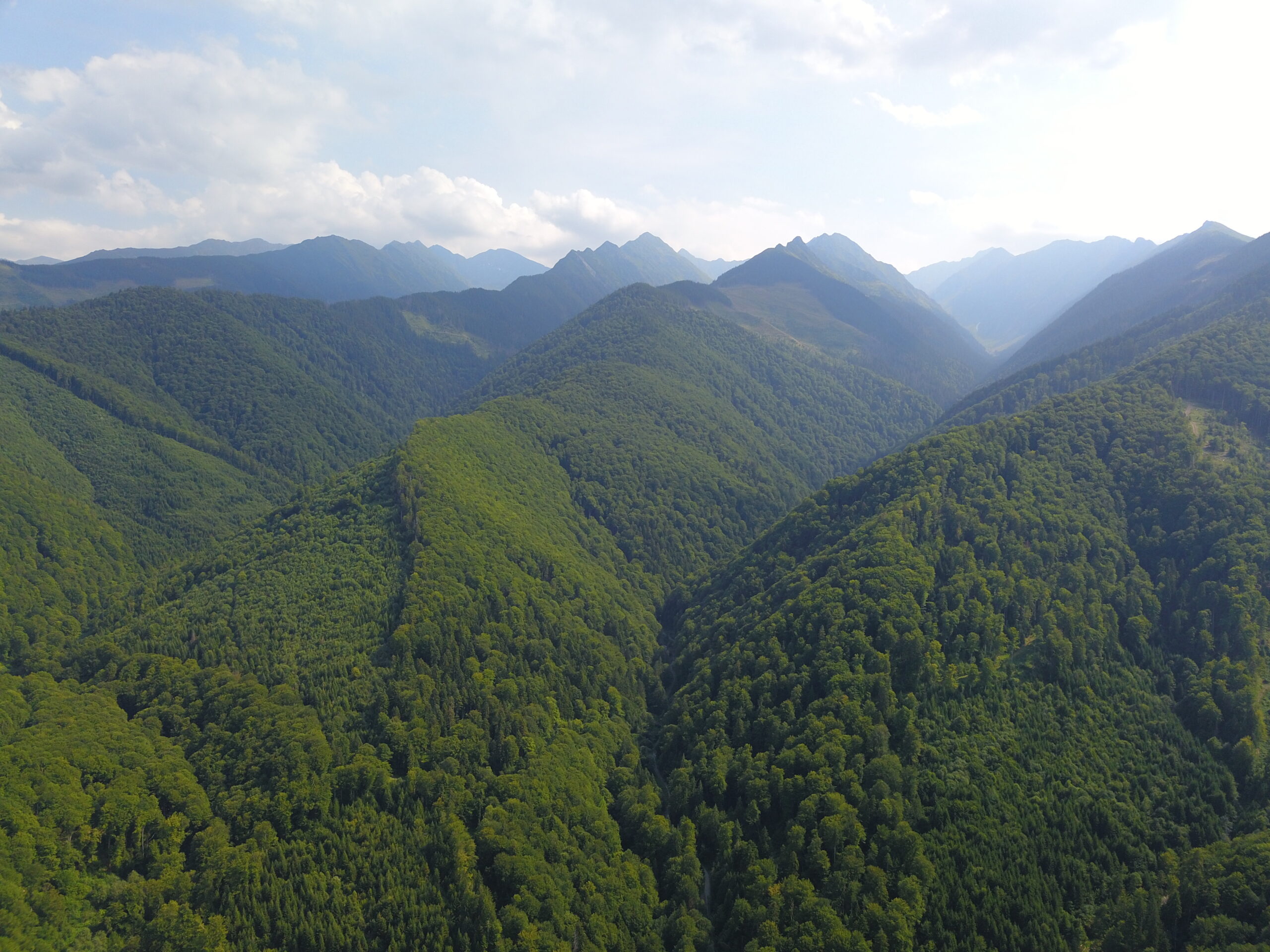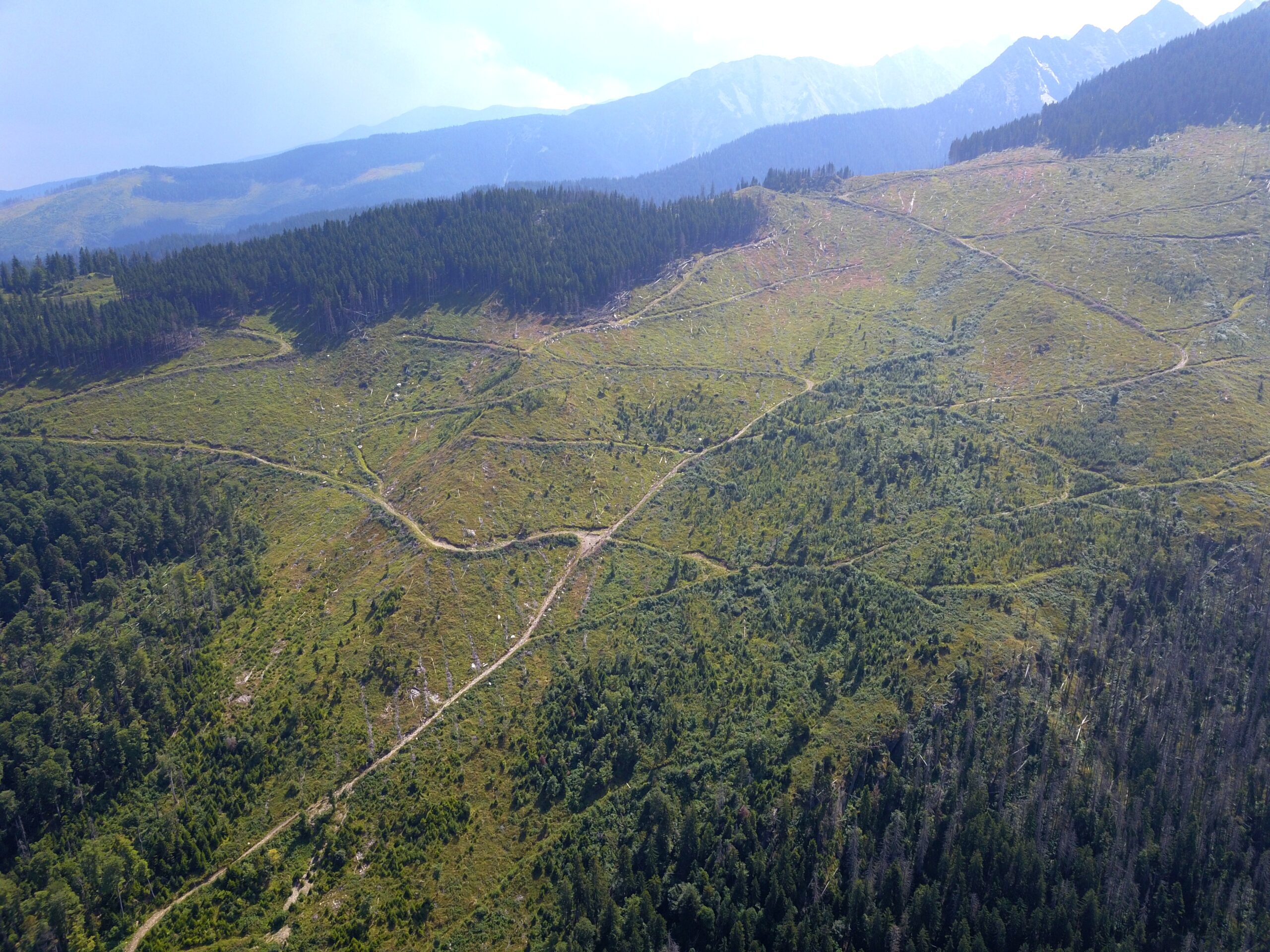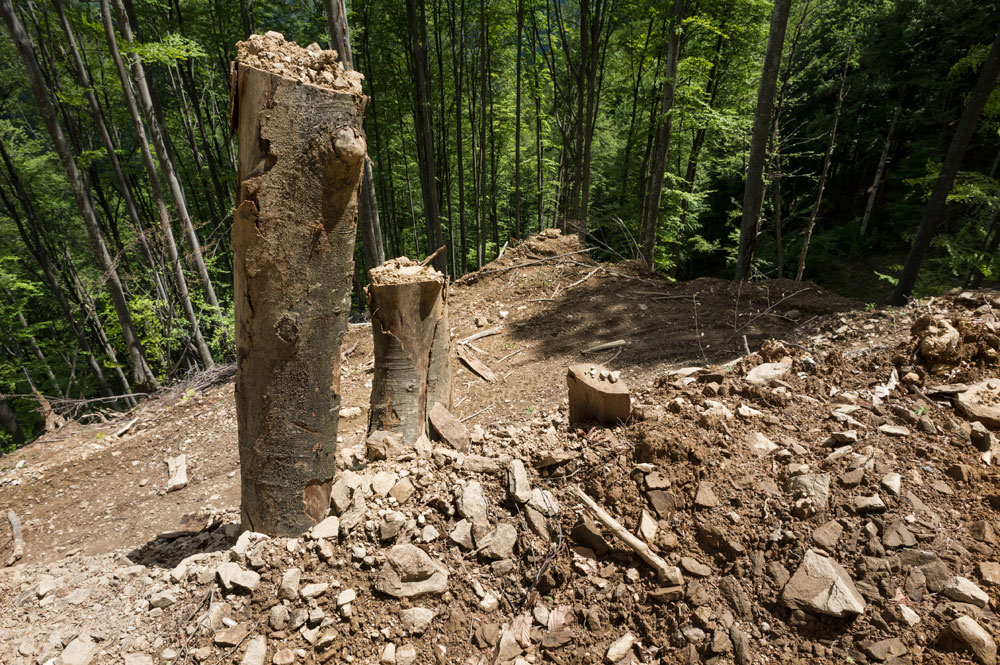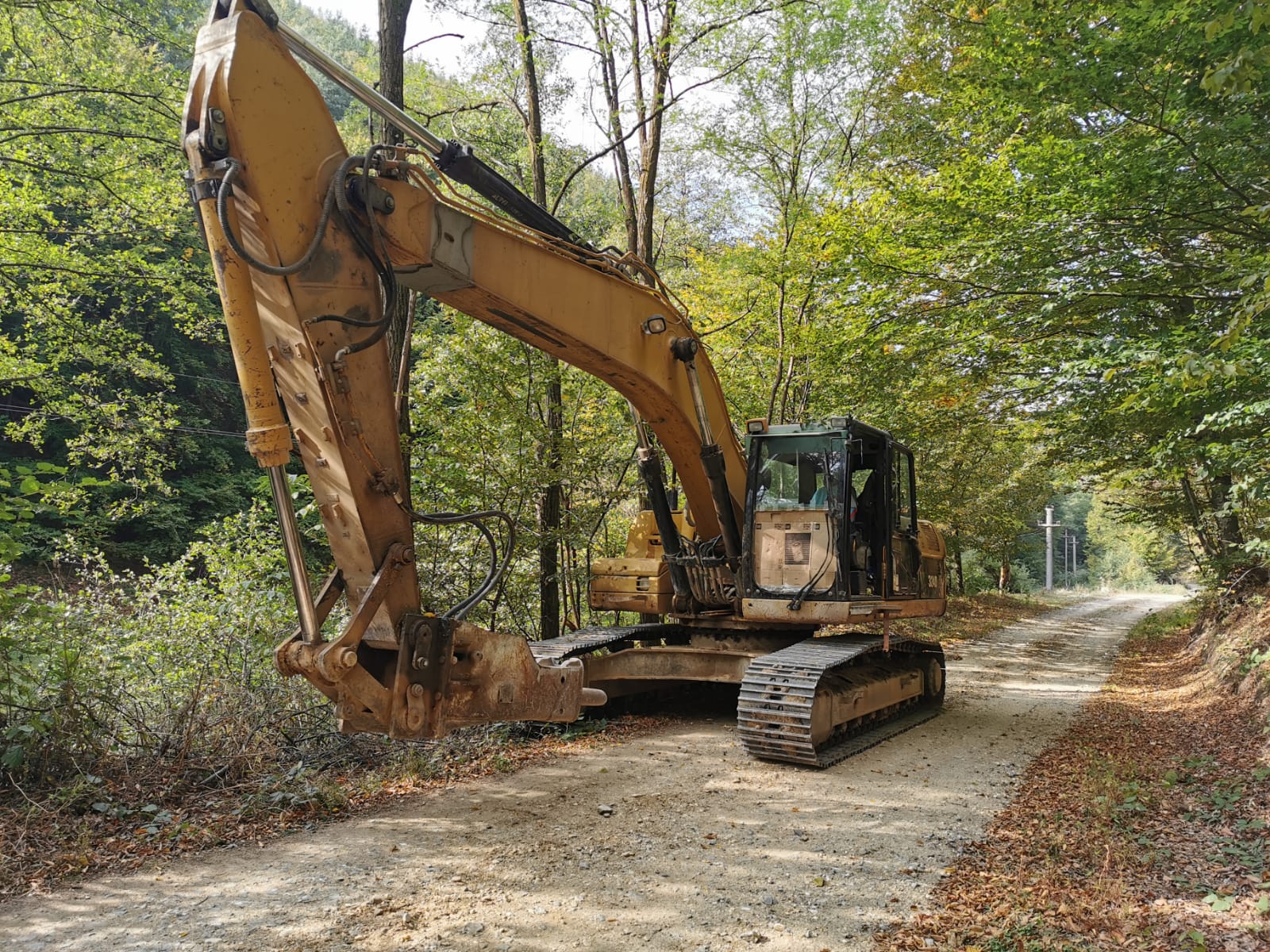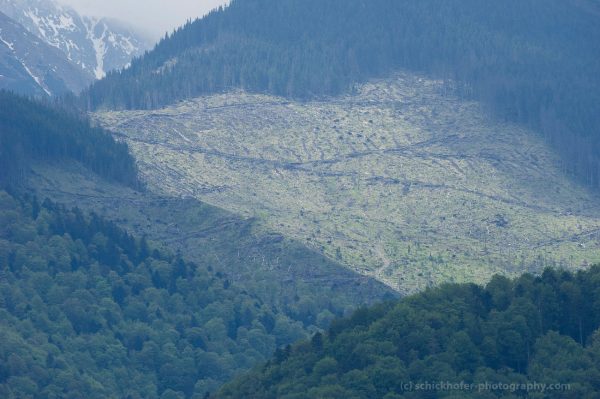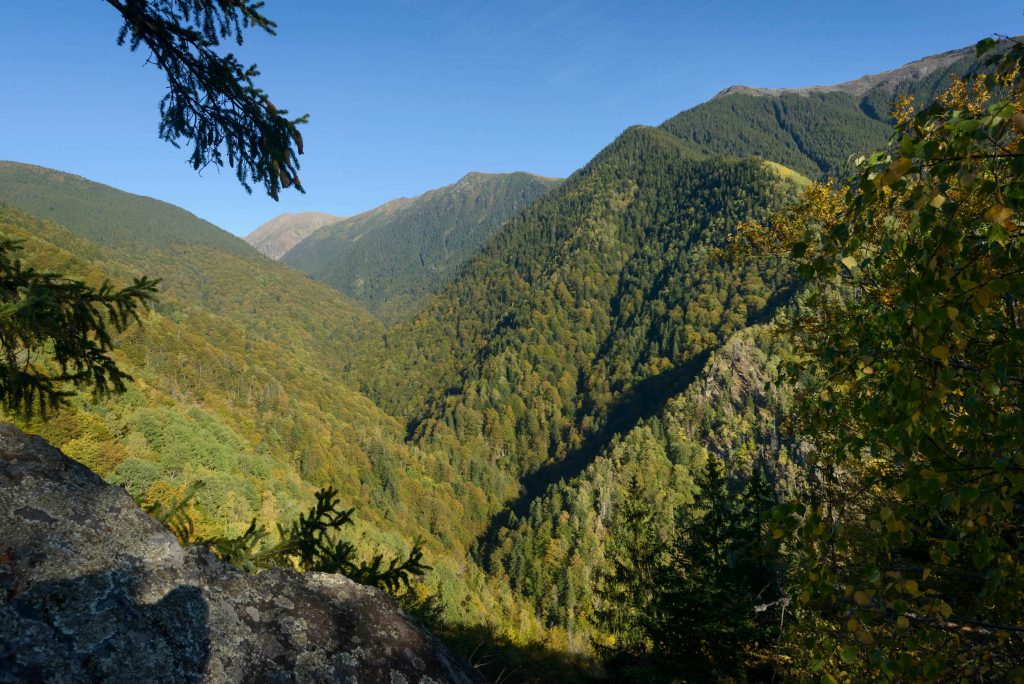Environmental organisations EuroNatur, Agent Green and ClientEarth have revealed the catastrophic scale of illegal logging of old-growth and primary forests in Romania’s Natura 2000 protected areas in a new complaint submitted to the European Commission.
The organisations have today submitted a complaint against Romanian authorities stating that the government’s lack of action to address extensive logging of primary and old growth forests within protected areas is leading to irreversible loss of unique habitats and species.
Romania hosts two-thirds of Europe’s remaining primary and old-growth forests of the temperate climate zone. These precious ecosystems, protected by European law as Natura 2000 sites, are being systematically destroyed by large-scale logging operations.
ClientEarth wildlife and habitats lawyer Ewelina Tylec-Bakalarz said: “Intensive logging, approved by the Romanian authorities and carried out by state forestry, Romsilva, has caused serious deterioration of habitats and species protected under EU Nature Directives. Logging continues to be an ongoing threat to Europe’s most unique ecosystems and a striking violation of EU law.”
The legal action follows previous complaints which led to the European Commission launching infringement proceedings against Romanian authorities over their systemic and continuous failure to protect one of Europe’s last natural forests.
Gabriel Schwaderer, Executive Director of EuroNatur said: “Our current complaint provides the European Commission with new evidence proving that illegal logging is causing a profound environmental crisis affecting many protected areas in Romania. We hope that it will allow the Commission to intervene sooner, because now might be our last chance to take action before damage of these unique ecosystems becomes irreversible.”
The evidence obtained by the environmental groups reveals the devastating impact of logging protected forests. In Natura 2000 sites in Făgăraș and Domogled, the majority of analysed habitats showed severe signs of deterioration. In the Natura 2000 site in Maramures the researchers have documented over 10,000 hectares of clear-cuts.
Veronica Tulpan of Agent Green said: “There are whole mountains where the forest habitat has been completely removed and all of the wildlife along with it. We need a rapid intervention from the Commission to start applying the nature directives in Romania properly.”
Tylec-Bakalarz concluded: “The situation in Romanian forests is dire, but the case taken to protect Poland’s Bialowieza Forest gives us hope. It proved how effective European law can be in safeguarding of our continent’s natural wonders.”
Video evidence about the fate of Romania’s Natura 2000 sites
Background information:
● The PRIMOFARO inventory (Primary and Old Growth Forest Areas of Romania), an analysis of Romania’s potential primary and old growth forests commissioned by EuroNatur, reveals that forest destruction is progressing quickly.
● Romania still has more than 525,000 hectares of potential old-growth and primary forests, which is more than any other EU member state (outside Scandinavia).
● Around 300,000 hectares of the Forests identified in the Primofaro inventory of Romanian woods are listed as Natura 2000 sites. Many protected animals such as large carnivores, black stork, owls, woodpeckers, bats and beetles depend on them for survival.
● Despite efforts by Romanian civil society groups to stop illegal logging, the situation in Romania has continued to deteriorate. The official national forest inventory shows that on top of 18 million m3 of legally harvested wood, another 8.8 million m3 of forest resources were extracted annually between 2009 and 2013 and increased to 20.6 million m3 annually between 2014 and 2018.
● The campaign “SaveParadiseForests“ aims at protecting the most valuable old-growth forests of the Carpathians, particularly Romania. It is jointly coordinated and carried out by the NGOs EuroNatur (Germany) and Agent Green (Romania).
Resources:
Briefing paper on the complaint to the European Commission
Briefing paper on Natura 2000 areas: Fagaras, Maramures and Domogled
Relevant videos: Primary forests, Maramures, Fagaras
About EuroNatur:
EuroNatur is a nature conservation foundation based in Radolfzell, Germany. Our efforts for a Europe with free-flowing rivers, ancient forests and a rich variety of cultural landscapes are transboundary in nature; we strengthen local conservation organizations and create international networks between them. Together with our Europe-wide partner network we create solutions that allow humans to live and work in harmony with nature. Our aim is a powerful network committed to protecting our European natural heritage.
About Agent Green:
Agent Green Association is a non-profit NGO for environmental protection and biodiversity conservation founded in 2009 in Romania. Established to protect Retezat Mountains, one of the last intact forest landscapes in the temperate climate of Europe, Agent Green evolved into carrying out investigations, scientific approach, strategic cooperation and effective campaigns targeted at bringing about positive and lasting change for nature.
About ClientEarth:
ClientEarth is a charity that uses the power of the law to protect people and the planet. We are international lawyers finding practical solutions for the world’s biggest environmental challenges. We are fighting climate change, protecting oceans and wildlife, making forest governance stronger, greening energy, making business more responsible and pushing for government transparency. We believe the law is a tool for positive change. From our offices in London, Brussels, Warsaw, Berlinand Beijing, we work on laws throughout their lifetime, from the earliest stages to implementation. And when those laws are broken, we go to court to enforce them.
